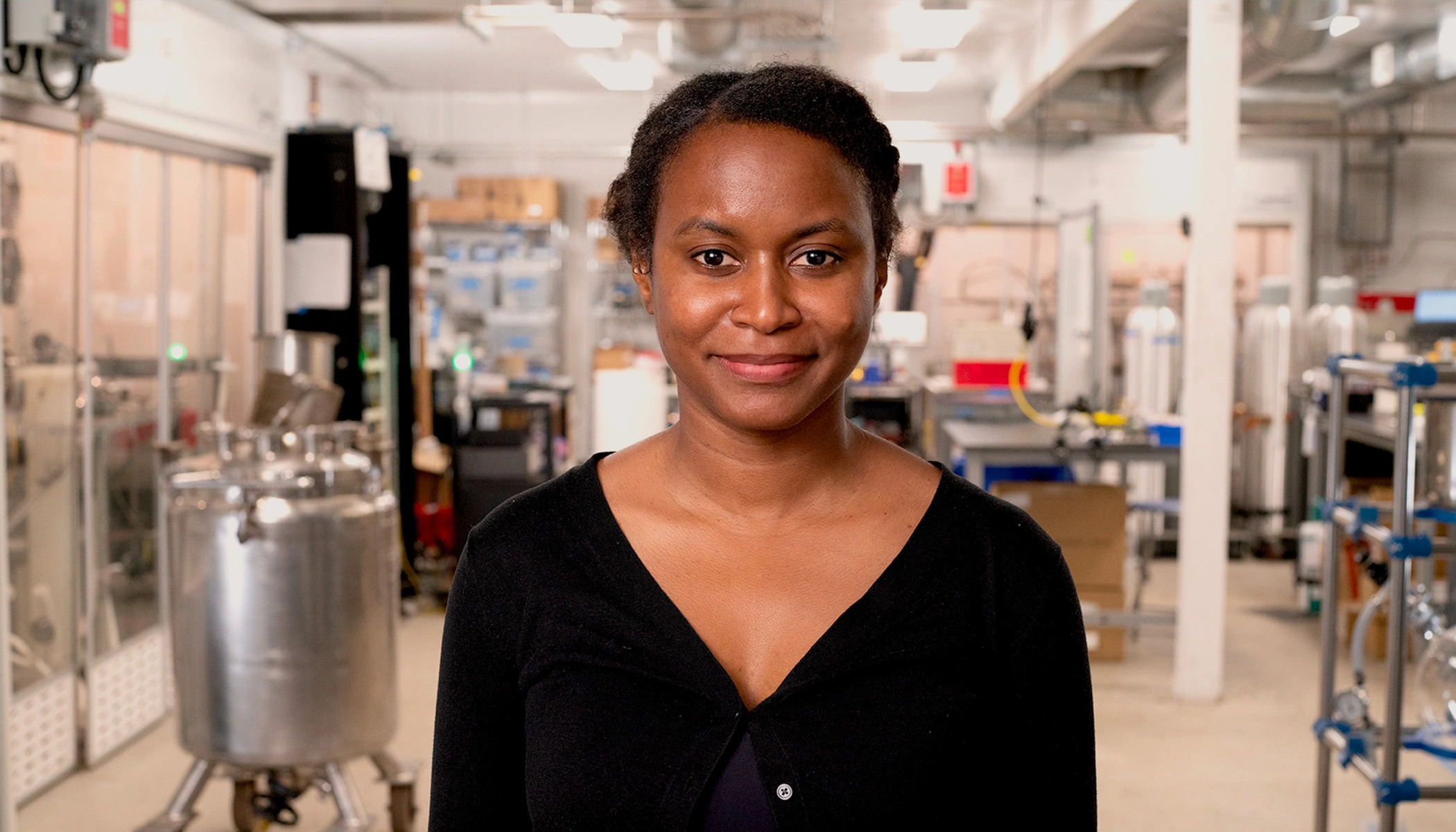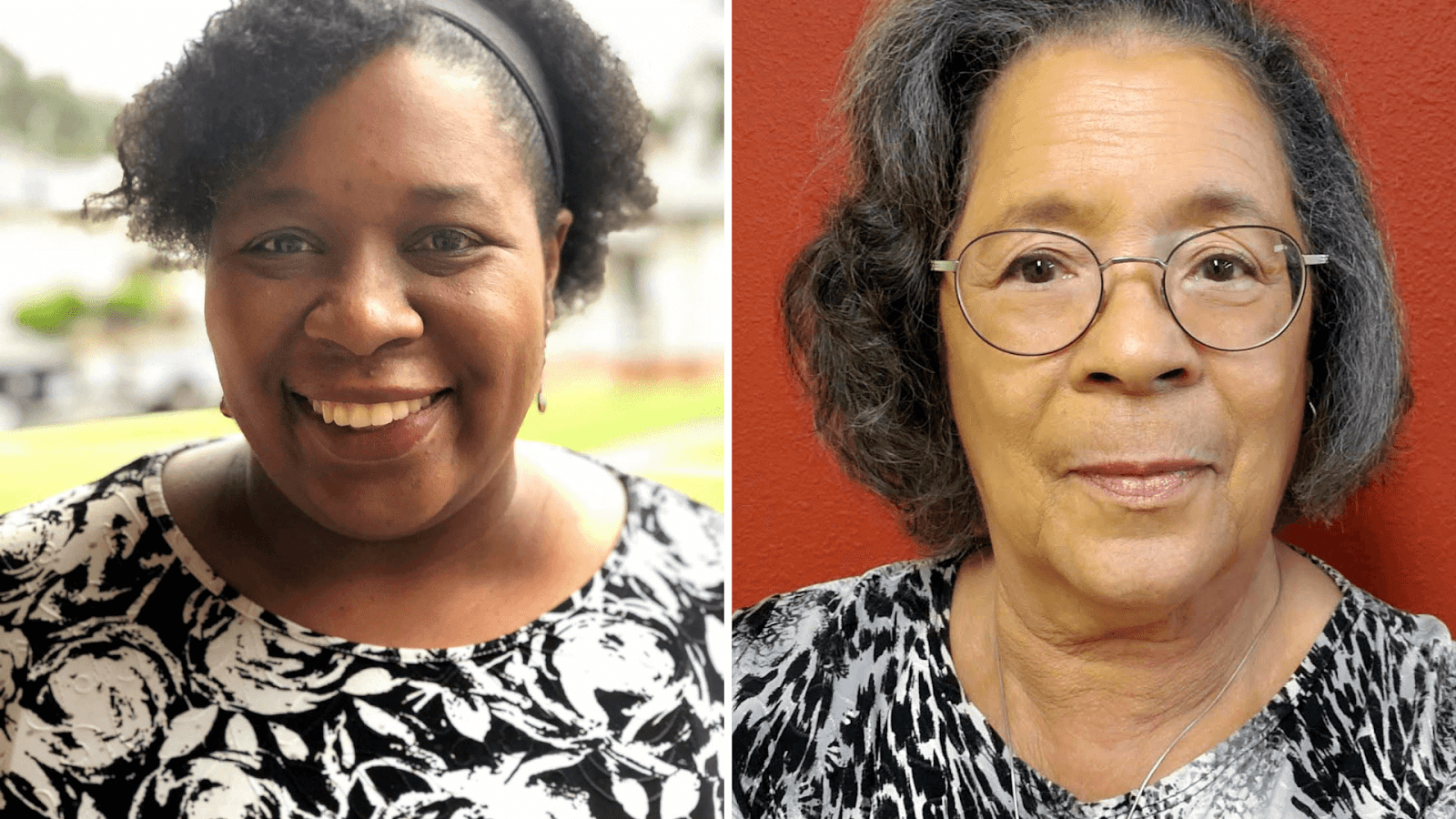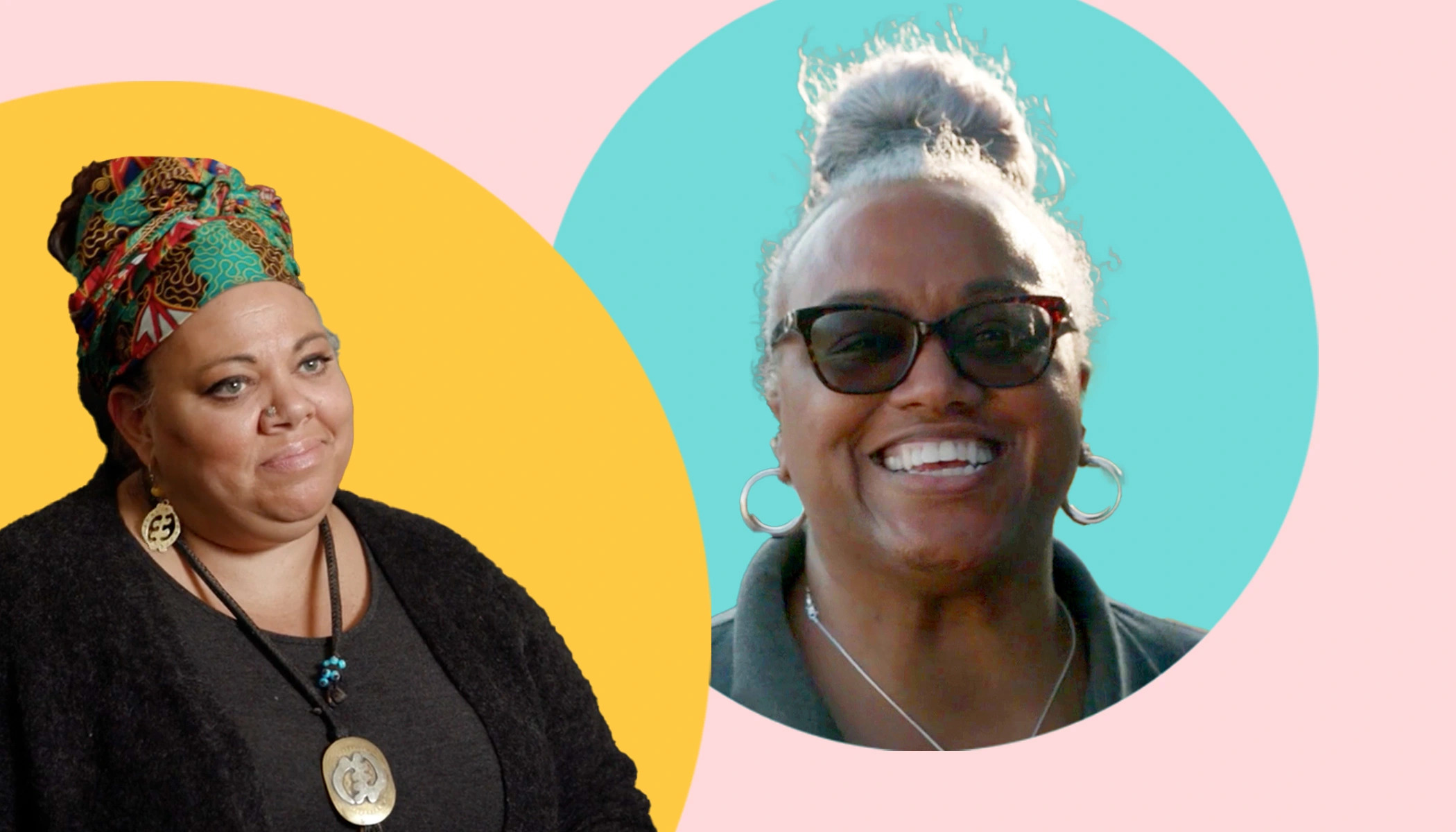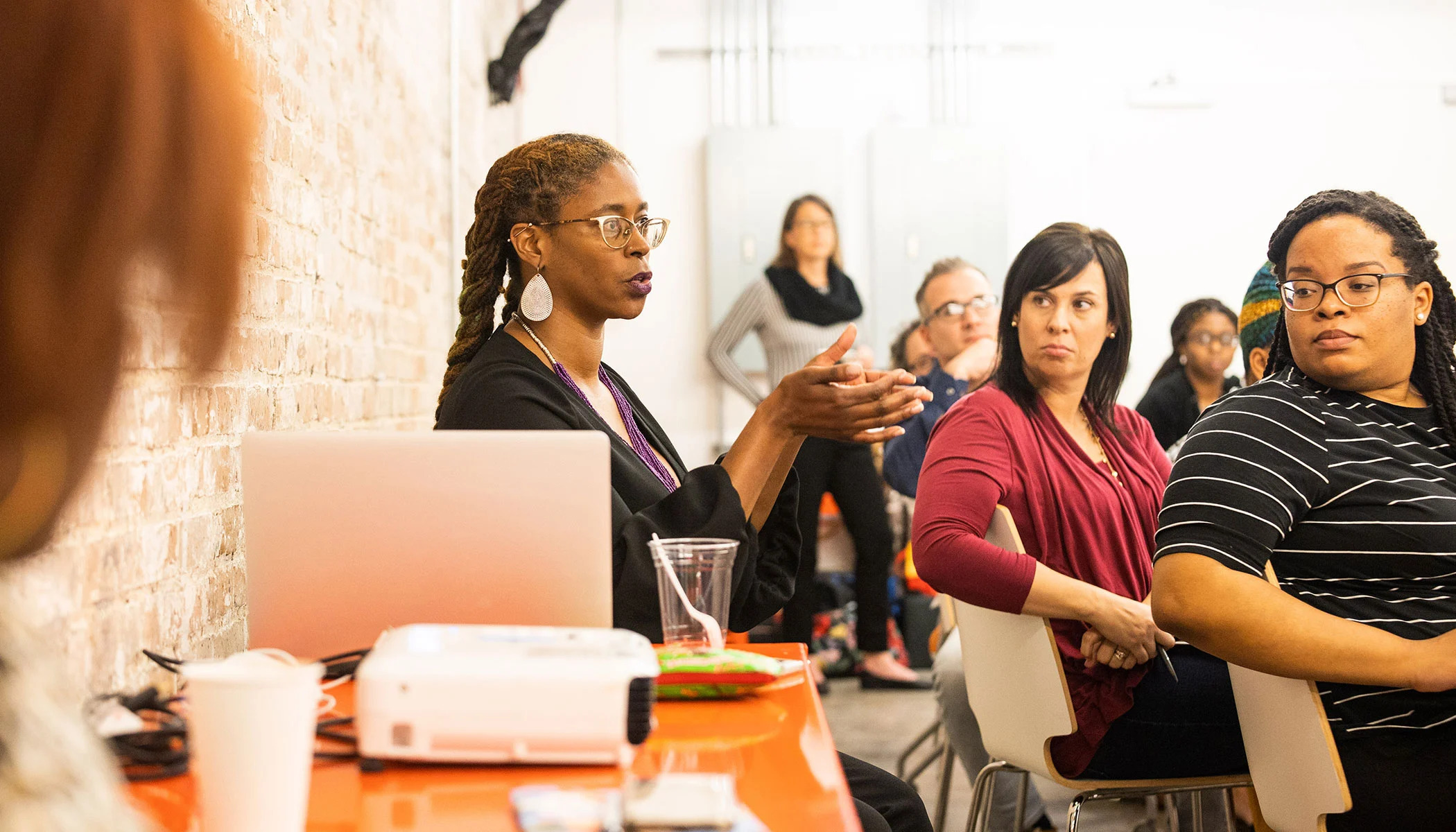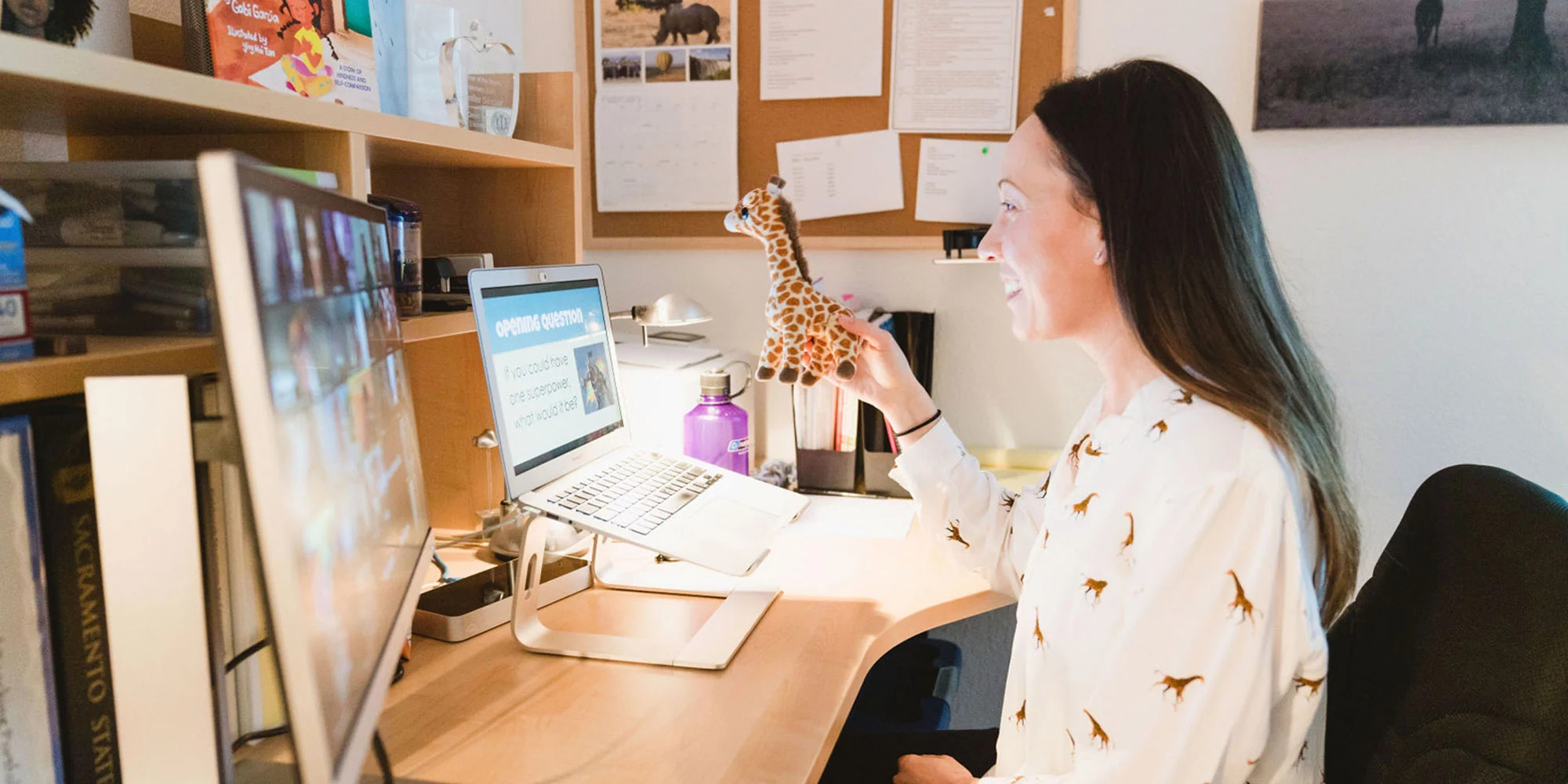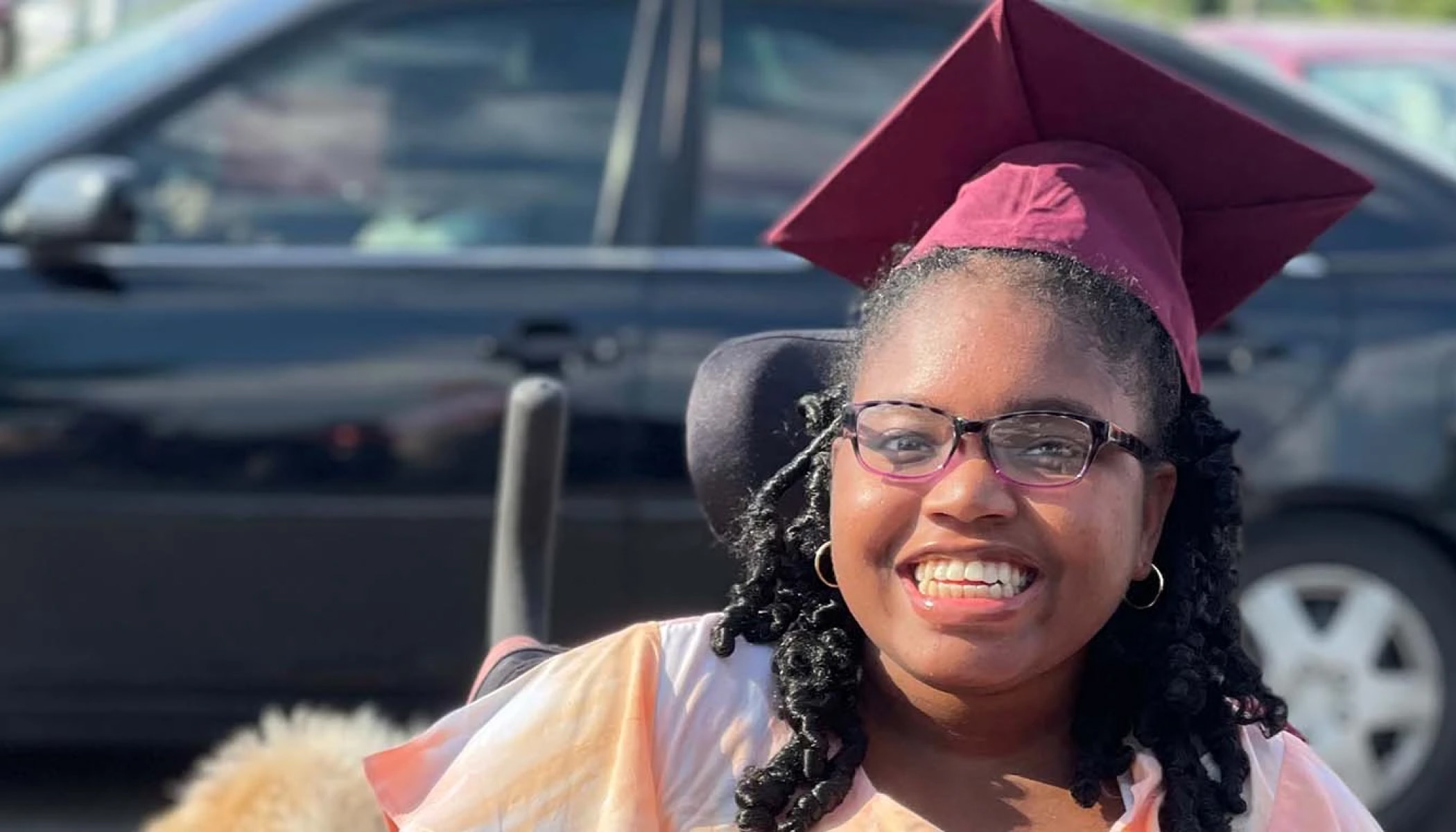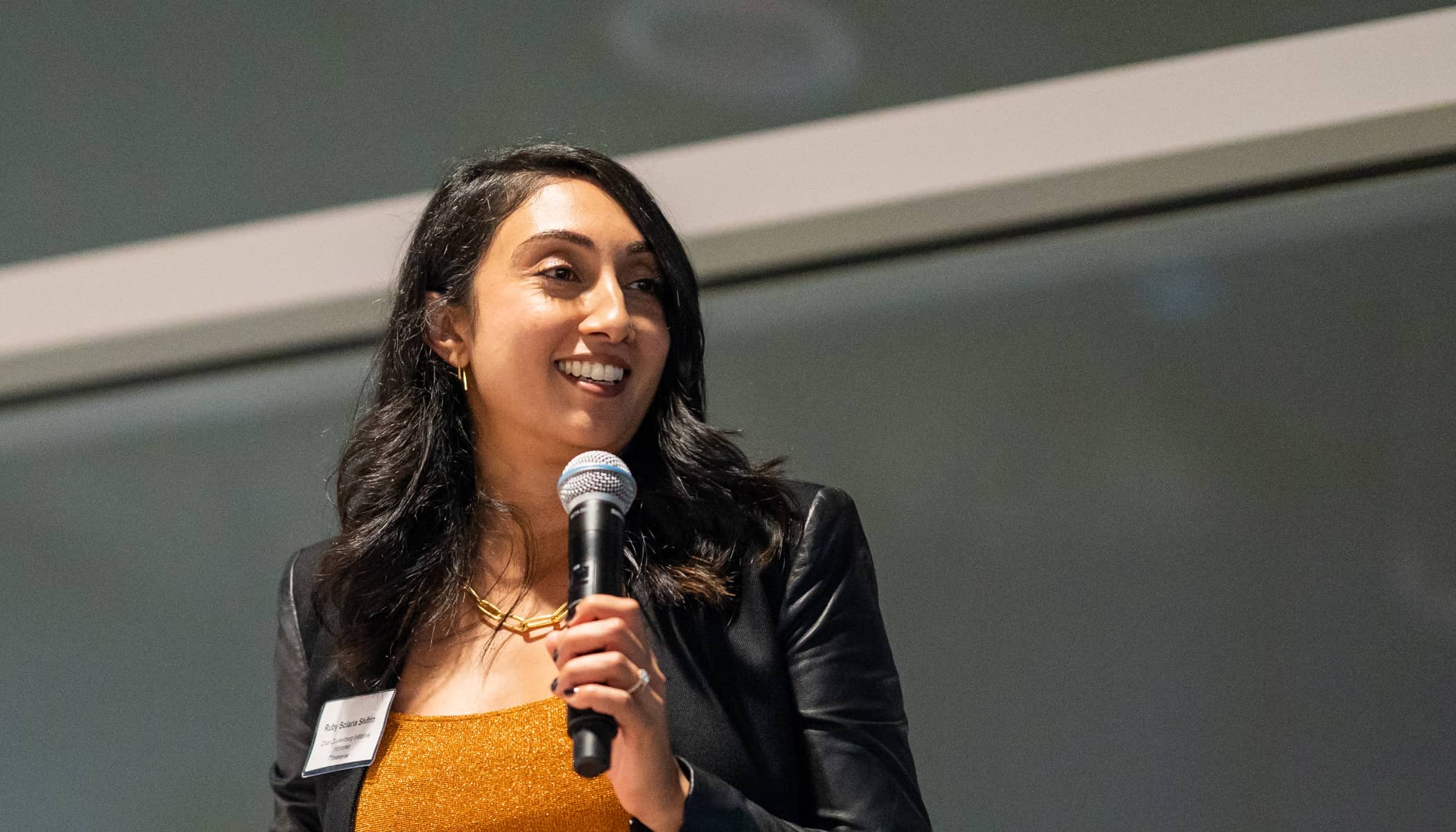Mar 29, 2022 · 4 min read
9 Inspiring Scientists, Community Advocates, Educators We’re Celebrating This Women’s History Month

CZI has the privilege to partner with inspiring people and organizations every day. These passionate, out-of-the-box thinkers are at the forefront of solving some of our society’s most pressing challenges.
As Women’s History Month comes to a close, we want to re(introduce) you to some of the community leaders, researchers, educators and advocates we’ve been fortunate to meet throughout the last year.
Etosha Cave, Co-Founder of Twelve
Dr. Etosha Cave spent a summer working on NASA space mission technology when she found the human waste management systems — which transformed waste into food for fish — inspiring. That inspiration eventually led to her co-founding Twelve, a CZI-supported venture turning carbon dioxide into useful industrial products such as carbon-neutral jet fuel. Learn about carbon transformation and how  for a comprehensive climate strategy.
for a comprehensive climate strategy.
Kalimah Salahuddin and Pam D Jones, CZI Community Fund Review Panelists
Kalimah Salahuddin is a fierce community advocate, single mom, and public affairs and investor relations manager for a pharmaceutical company. Pam D Jones is a retired college professor focusing her community efforts on voting rights education and exposing institutionalized racism. Read about  part of 11 community members enlisted to help allocate CZI Community Fund grants. Their expertise and personal experience helped select organizations increasing access to social and economic well-being in San Mateo County, California.
part of 11 community members enlisted to help allocate CZI Community Fund grants. Their expertise and personal experience helped select organizations increasing access to social and economic well-being in San Mateo County, California.
Dr. Monique LeSarre, Executive Director of the Rafiki Coalition, and Lisa Tealer, Executive Director of BACHAC
Black, Latina/o/x, Indigenous, and other communities of color have been some of the hardest hit by COVID-19, reinforcing long-standing health inequities. But, community-based organizations provide inclusive, responsive health services that have supported communities throughout the pandemic. Dr. Monique LeSarre, executive director of the Rafiki Coalition, and Lisa Tealer, executive director of the Bay Area Community Health Advisory Council (BACHAC), have led the way in creating lasting models for accessible and equitable community health and wellness.  to see how the Rafiki Coalition and BACHAC have responded to the pandemic and listen to a special conversation between these persevering female leaders.
to see how the Rafiki Coalition and BACHAC have responded to the pandemic and listen to a special conversation between these persevering female leaders.
Rhonda Broussard, Founder of Beloved Community
After a police officer killed 18-year-old Michael Brown Jr., Rhonda Broussard began rethinking her relationship with education reform.
“The diploma did not stop the bullet; he had just graduated that spring,” she says. “And we were essentially trying to build a better diploma.”
Then, Rhonda founded Beloved Community, a nonprofit consulting firm focused on implementing regional, sustainable solutions for diversity, equity and inclusion. Beloved equips schools and organizations with information and strategies meant to dismantle failing systems and replace them with people-centric processes. Read about her  for strengthening equity in schools.
for strengthening equity in schools.
Elizabeth Bhoj and Rebecca Ahrens-Nicklas From CZI’s Neurodegeneration Challenge Network
Drs. Elizabeth Bhoj and Rebecca Ahrens-Nicklas are physician-scientists who formed a friendship during their residency. They met a baby initially born healthy whose heart rate and oxygen levels dropped two hours after birth — and no one knew why. The two women discovered that the baby had a rare disease, and both went on to study rare pediatric diseases.  about how they teamed up as part of CZI’s Neurodegeneration Challenge Network Collaborative Pairs program to break scientific ground that could help us understand a broad range of neurological disorders.
about how they teamed up as part of CZI’s Neurodegeneration Challenge Network Collaborative Pairs program to break scientific ground that could help us understand a broad range of neurological disorders.
Sixth Grade Teacher Jennifer Sinclair
When COVID-19 forced schools to go remote, sixth grade teacher Jennifer Sinclair had to get creative. She added ice breakers to her curriculum, such as asking silly would you rather questions and having students complete a scavenger hunt with items in their homes. These changes helped keep her students engaged despite learning virtually, one of many relationship-building skills she gained during training with the University of California San Francisco’s Healthy Environments and Response to Trauma in Schools (HEARTS) program. HEARTS partners with schools to improve outcomes for students using a trauma-informed approach. Get to know  show students that she cared about more than their academics.
show students that she cared about more than their academics.
Subscribe to the  for more uplifting storytelling about people and organizations making an impact.
for more uplifting storytelling about people and organizations making an impact.



